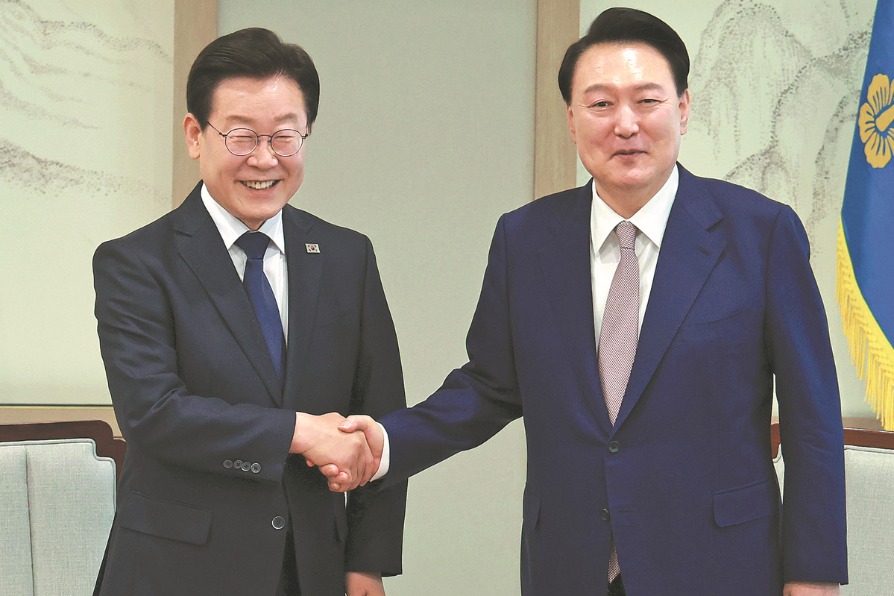Increase in defense budget justified
By Liu Qiang | China Daily | Updated: 2021-03-20 10:07

China has raised its defense budget by 6.8 percent year-on-year to 1.35 trillion yuan ($208 billion) this year, slightly more than the 6.6 percent increase in 2020 and the lowest in two decades. Yet as soon as China unveiled the defense budget, cries of China posing an even bigger military threat became louder in some parts of the world.
China has reiterated that its defense budget is based on its economic growth and national security needs keeping an eye on the changing international security situation. Safeguarding national security is essential to ensuring socioeconomic development. And to safeguard national security, a country needs a strong defense sector, which in turn depends on the defense budget. That's why every country accords top priority to defense and carefully prepares its defense budget.
For China, national defense means military actions that a country takes to resist foreign aggression, prevent regime change, and safeguard sovereignty, territorial integrity and national security, which also include military-related activities on the political, economic, diplomatic, technology and education fronts.
The defense budget helps a country to maintain a complicated national defense system that involves personnel, institutions, weapons and equipment. And the factors that influence defense spending include national interests, the degree of external threat and economic resilience.
The international situation has been changing at an unprecedented pace. In particular, complicated geopolitical issues and rising global uncertainties pose a big challenge to China's security, sovereignty and development interests.
And since the risks to global peace and security are growing, China, as a responsible major country, has to increase its defense budget to fulfill its national and international obligations.
China has increased its defense spending so it can adapt to the changing international situation and meet the nation's demand for sustainable development. It would therefore be preposterous to suggest that China has changed its national security and military strategy to threaten other countries.
China's rapid economic development has allowed it to increase its defense budget, even though slightly, every year. For example, China's GDP reached 101 trillion yuan last year, up 2.3 percent year-on-year despite the devastating impacts of the COVID-19 pandemic, and the Interim Economic Outlook of the Organization for Economic Co-operation and Development, issued on March 9, says that in 2021, while the global economy will grow by 5.6 percent, the Chinese economy will expand by 7.8 percent.
Besides, given that China's thrust was on economic development for more than three decades since the launch of reform and opening-up in 1978, the country's military developed at a relatively slow pace. Only in recent years has China been raising its defense expenditure in order to develop major projects, upgrade and modernize hardware, and strengthen training mechanisms.
The increase in the defense budget will also enable China to play a bigger role in the United Nations' peacekeeping operations, and humanitarian aid and emergency rescue and relief missions. Certainly, a stronger China will make more contributions to peacekeeping and other global security activities.
China is a peace-loving country, but the fact that it suffered atrocities at the hands of foreign aggressors and was a victim of wars prompted it to strengthen its military, so as to safeguard national security. Yet China still adheres to a defensive defense policy.
It is a pity that, in spite of China repeatedly explaining the reasons for increasing its defense budget, some countries still regard China as a threat. Only if these countries view China's defense spending through the lens of reason, instead of conspiracy theory, can they see the logic and necessity behind China's decision, and deepen cooperation with it to maintain global peace and security.
The author is a professor at and executive director of the Institute of Strategy and Security, the National University of Defense Technology.
The views don't necessarily reflect those of China Daily.
























